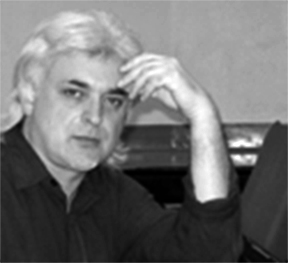Documents Downloads
2016 Rules
[ddownload id=”893″]
2016 Application
[ddownload id=”890″]

✅Никогда не начинайте петь не разогревшись
Ваши голосовые связки нуждаются в предварительной разминке перед тем как начнете петь. Чрезмерные нагрузки «холодных» голосовых связок могут привести к необратимым последствиям. Всегда нужно иметь запас времени на разогрев — минимум за десять минут до начала полноценной работы связок. Это поможет не только подготовить голос, но и успокоит вас (увеличение поступления кислорода в легкие помогает расслабиться).
✅Пойте так же, как вы говорите
Ваши голосовые связки в течении жизни привыкают к определенному стилю и диапазону громкости. Это означает, что если вы в жизни «тихоня», то сразу начать исполнять репертуар Кристины Агилеры будет, как минимум, стрессом для ваших голосовых связок и может, наоборот, сделать их слабее. Это связано с привычным для вашего организма процессом выпуска воздуха из диафрагмы. Начинайте с привычного уровня громкости и постепенно, занятие за занятием, совершенствуйте свои способности, приближаясь к желаемому уровню.
✅Лимон ?
Лимон — это не сумма потраченных денег, чтобы стать поп-звездой. Лимон — это фрукт, который поможет подготовить ваши голосовые связки. Кислоты лимона сделают ваше горло чистым, а дыхание свежим, как в рекламе! Долька лимона и стакан воды очистят ваше горло и, не исключено, поднимут вам настроение.
✅Шоколад и молочные продукты перед пением уменьшают ваш диапазон
Молочные продукты и шоколад образуют в горле пленку, которая будет мешать вам петь. Эта пленка не позволит вашим голосовым связкам раскрыть полный диапазон движения и вибраций. Плюс постоянное чувство необходимости очистить горло.
✅Никогда не пойте, когда у вас нет на это настроения
Если вы поете для аудитории, то она обязательно это почувствует. То же самое и в студии в процессе записи. Не давайте возможности ненужным эмоциональным переживаниям взять верх над вами на сцене или в студии. Если вы просто хотели потренироваться и вы не в настроении, то перенесите тренировку, так как ничего хорошего из этого все равно не выйдет. Ваше настроение влияет на ваши тональные качества, а мышцы лица испытывают психо-физический стресс.
✅Стресс? Дышите глубже!
Если у вас стресс на сцене или в процессе записи, либо испытываете тревогу перед тренировкой — просто сделайте несколько глубоких вдохов. Состояние тревоги возникает, как естественная реакция на стресс, в следствии чего дыхание становится коротким, быстрым, повышается давление, возникает сухость в горле. Для борьбы с этим сделайте несколько медленных и очень глубоких вдохов. После чего в организме будет значительно больше кислорода, который поможет расслабить мышцы. Вскоре уровень тревоги начнет падать и вы почувствуете себя гораздо лучше.
✅Keep singing!
Просто продолжайте петь, так как вам это нравится и больше всего подходит. И это не только улучшит ваши вокальные способности, но и обязательно изменит вашу жизнь в лучшую сторону!

Article on Choosing Competitions:
http://www.musicalamerica.com/news/newsstory.cfm?storyid= 27160&categoryid=7&archived=0San Jose Piano Competition
http://www.sjipc.com/Glendale Piano Competition
http://www.glendalepianocompetition.org/ Piano Competition in the Desert.
http://www.vwipc.org/Paderewski Society and Competition
http://ijpaderewski.org/wpd/Stuff Happens
http://sanfrancisco.cbslocal.com/2014/06/16/piano- competition-participant- nearly-passes-out-during-san- jose-performance/ ABRSM. British based Music Examination
http://us.abrsm.org/en/homeMTNA music exams and competitions
http://www.mtna.org/programs/competitions/
Articles about Music Lessons and Benefits
http://www.childrensmusicworkshop.com/ advocacy/
Musical Dictionary http://www.naxos.com/
education/glossary.asp

Great teacher is a guide. He/she hopefully went through rigorous training as a musician and a performer and has experienced and negotiated all the highs and lows we musicians experience– and overcame it all! Having experienced the joys and sufferings of music making, good teacher should have compassion to guide his/her students through the same process–with kindness and an occasional firm hand
When contacted, teachers are usually more than willing to explain their techniques and educational backgrounds. The following are types of questions to ask during the first interview:1. What is your professional and educational experience in music?
2. What is your teaching experience? What age groups do you teach?
3. Do you have a written policy? Can I see it?
4. What methods and materials do you use?
5. What styles of music do you teach and most comfortable with (classical, jazz pop etc)
6.Do you offer group lessons?
7. Do you hold student recitals? How often?
8. Any of your students participate in competitions and/or festivals?
9. Do you require your students to take music exams (MTNA, ABRSM)
10. How much practice time do you require each day?
11. How much do you charge? Monthly? Any discounts? What forms of payments you accept?
12. What is your policy regarding cancellations of lessons and make-up lessons?
Can we do a trial period, say one month?
13. Do you offer half-hour, 45 minutes, one hour lessons?
14. Any opportunity to participate in ensemble (duos, trios quarters…) performance activities?
Next entry: Questions a teacher might ask before accepting YOU as a student!

by Mischa Kopitman
“Music is your own experience, your thoughts, and your wisdom. If you don’t live it, it won’t come out of your horn.” – Charlie Parker
This series of articles is addressed to novice and experienced young solo musicians who enter the field of competitive music-making. These ideas are not intended as a cookie-cutter blueprint for winning, as no such blueprint exists. However, I’m confident that some of my suggestions, if followed, can help young soloist maximize his/her chances for success. Feel free to consider and experiment. Use ideas you feel comfortable with and discard those that don’t fit your personal approach or the ones your teacher disagrees with. Most importantly: Be Unique! Be Original! Be Yourself!
“The test of a first-rate intelligence is the ability to hold two opposed ideas in mind at the same time and still retain the ability to function”— Scott F. Fitzgerald
You Be The Judge
Listen to one of the performances that lost Pogorelich the competition, but won him stardom.
Chopin Scherzo No. 3, Op. 39
Compare it to one of the last great Romantics, Arthur Rubinstein playing the same piece:
https://www.youtube.com/watch?v=defpNc1TQNI
To be continued…
Please read Part 2 of the Winning A Music Competition: Sight Over Sound.
© 2015 Mischa Kopitman. All Rights Reserved.
| M | T | W | T | F | S | S |
|---|---|---|---|---|---|---|
| 1 | 2 | 3 | 4 | 5 | 6 | 7 |
| 8 | 9 | 10 | 11 | 12 | 13 | 14 |
| 15 | 16 | 17 | 18 | 19 | 20 | 21 |
| 22 | 23 | 24 | 25 | 26 | 27 | 28 |
| 29 | 30 | |||||
